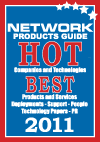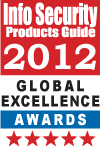So far, Apple’s Mac computers remain relatively unscathed in the antivirus epidemic plaguing PCs. But Macs are equal opportunity for network connectivity threats. In fact, because so many VPNs aren’t compatible with Macs, it’s possible that Macs could sometimes be more vulnerable.
So, we were delighted to stumble upon a mysterious web site that boldly confronts the wireless connectivity issue for Mac users. My Mac Address.com explores just about every corner of network security, with recent posts tackling subjects like secure wireless networks, the importance of a web content filter and Wi-Fi security, computer support on wireless networking.


While many of the posts aren’t unique to Macs, they all pertain to using wireless connectivity securely. This is a necessary reality check. After all, people tend to wear rose-colored glasses about wireless connectivity, taking a “connect now and deal with the consequences later” approach. We fall in love with the dream of chucking all of our tangled wires and being able to connect from faraway and exotic lands. Or we’re simply at a café that offers unsecure wireless and the lure of signing on is far too tempting. Hackers know this and exploit wireless vulnerabilities at every turn. So it’s great that “My Mac Address” shines a light on this problem, particularly for Mac users, who sometimes falsely carry a torch of invincibility.
Some of the tips on the site are basic and others are directed at more advanced networkers, but all are worth considering. Among the most noteworthy tips to us are:
– Reduce the broadcasting range of your network – doing so can keep nosy neighbours from intruding on your connection. You can do this by moving your wireless router away from external wall in your home and by decreasing it’s power settings.
– Disable SSID broadcasting as most wireless routers broadcast the names of the network which could aid a hacker.
– Disable your wireless connection when you are not using it.
And from there, the posts get both less and more complicated, so there’s something for nearly everyone. Our only lingering question is, who is behind the helpful site? Most of the posts are not bylined, but a handful trace back to some computer consultants.
What do you think of MyMacAddress.com?
[tweetmeme source=”vpnhaus” only_single=false]
 The first full day of RSA 2011 kicked off yesterday with big crowds. The halls were consistently bustling, the floor traffic was heavy, and the lines for coffee stretched for what seemed like an eternity. Scott Charney, Microsoft corporate vice president for Trustworthy Computing, delivered yesterday’s keynote, advocating a collaborative approach to Internet security, similar to the used to fight global epidemics.
The first full day of RSA 2011 kicked off yesterday with big crowds. The halls were consistently bustling, the floor traffic was heavy, and the lines for coffee stretched for what seemed like an eternity. Scott Charney, Microsoft corporate vice president for Trustworthy Computing, delivered yesterday’s keynote, advocating a collaborative approach to Internet security, similar to the used to fight global epidemics.






